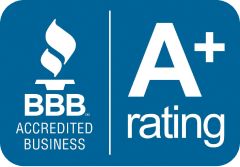Summary:
Popularity of Medicare Advantage plans is rising rapidly, and with good reason. Medicare Advantage plans offer the same and sometimes even more coverage than Original Medicare. Here are some tips for picking the best Medicare Advantage programme for you.
One person’s health care is not the same as another person’s. This is why selecting a health insurance policy is an individual one.
What’s the good news? You can select from a wide range of medical coverage alternatives when you go with a Medicare Advantage plan. And now for the bad news… It’s up to you, as you have many choices. This is where, however, we come in. All the information you need to know about Medicare Advantage plans is right here, and we’re here to help you find the plan that works best for you.
What is a Medicare Advantage plan?
Okay, let’s back up and start from the beginning: A Medicare Advantage plan is a private insurance programme that competes with the government-run Original Medicare (Parts A and B). However, Medicare Advantage is provided by private insurance companies that have agreements with Medicare. Sometimes referred to as “Part C” of Medicare.
Medicare Advantage is a combination of traditional Medicare and private health insurance, according to Caitlin Donovan, a spokesperson for the National Patient Advocate Foundation.
All Medicare Advantage plans are required to adhere to Medicare’s regulations. For instance, all of them must meet or exceed the coverage requirements of Original Medicare. In contrast, most plans include a great deal more coverage, which is what makes them stand out.
Hearing aids, regular eye exams, and cleanings, as well as wellness programmes, are often bundled into Medicare Advantage plans (like gym memberships). They typically include protection for the cost of medicines required by the patient. In addition to Original Medicare, you’ll need to enrol in a drug coverage programme (Medicare Part D).
As an additional point of differentiation, Medicare Advantage plans have an annual out-of-pocket maximum. To receive full coverage from your plan, you’d have to spend that much each year. If you have Original Medicare, your out-of-pocket expenses are not capped at any amount.
However, enrolling in a Medicare Advantage plan is not without its drawbacks. Donovan warns that in some cases, you may be required to see in-network providers, obtain referrals to see specialists, or obtain prior authorizations before receiving treatment.
You must meet these requirements to enrol in Medicare Advantage:
- You must be a U.S. citizen or a lawful permanent resident to work here.
- Participate in Medicare Parts A and B
- Must be physically present within the Medicare Advantage provider’s service area
What are the different types of Medicare Advantage plans?
A person eligible for Medicare Part A can select from a number of Medicare Advantage plan options. The advantages provided by each option are distinct:
Plans offered by health maintenance organisations (HMOs) typically mandate that members use in-network physicians and hospitals for treatment. However, there are some exceptions to this rule, including temporary dialysis outside of the patient’s home country and out-of-area emergency care.
If you sign up for an HMO, you’ll probably have to pick a primary care physician and get a referral before seeing a specialist.
Preferred Provider Organization (PPO) plans offer lower costs for care received from in-network doctors and hospitals while still allowing for the use of out-of-network providers and facilities at a higher cost. Whenever you need immediate medical attention, you’ll be covered. You won’t have to select a primary care physician, and you probably won’t need a referral to see a specialist, either.
In the case of a private PFFS plan:
Your out-of-pocket costs for medical care, as well as what your insurance company will pay for services, are both left up to the plan’s discretion under a PFFS. While some health insurance plans do not restrict you to a specific network of doctors and hospitals, others do.
But if you ever need immediate medical attention, you can count on getting it. There will be no requirement for you to select a primary care physician or seek out specialist referrals.
If you need prescription drug coverage, you should make sure to verify that your chosen plan type offers it.
The next step is to verify that your medication is covered by the plan by checking the formulary. People with Medicare Advantage typically do not have access to stand-alone drug coverage plans like Medicare Part D.
Planned Parenthood for Women with Special Needs (SNP): SNPs are only available to the following populations:
- Patients with certain diseases or conditions (including advanced kidney failure, HIV/AIDS, and a variety of autoimmune, respiratory, and neurological illnesses)
- Residents of nursing homes, hospitals, and other residential care facilities
- Participants in both Medicare and Medicaid
Although some SNPs may include coverage for services received outside of the network, others may not. A primary care physician or other care coordinator is typically required, and referrals to specialists are frequently necessary. Prescription drug coverage is a requirement for all SNPs.
What’s the best way to compare Medicare Advantage plans?
Medicare Advantage plans are offered by private insurance companies that have been granted approval by Medicare. Some plans may require you to get a referral to see a specialist, while others may not.
According to the Kaiser Family Foundation, there are almost 4,000 Medicare Advantage plans in the United States, though not all of them are offered in every state. The Kaiser Family Foundation reports that the median number of Medicare Advantage plans available is 39, the highest number in more than a decade.
Here are some things to consider when contrasting Medicare Advantage plans:
- Medicare Advantage plans typically have monthly premiums that must be paid. Medicare Advantage premiums are typically the same as those for Medicare Part B, but can vary widely by provider. (The standard monthly cost of Medicare Part B in the year 2022, which is $170.10)
- The annual deductible is the amount you are responsible for paying out of pocket for medical care and prescription drugs each year before your insurance company starts paying. It’s reasonable to expect to pay this much for your chosen plan.
- Minimum out-of-pocket costs and maximum coverage at enrollment:
- Medicare Advantage plans, in contrast to Original Medicare, have annual spending caps. After this amount is paid (which includes the deductible), all remaining covered medical expenses for the year are paid in full by the Medicare Advantage plan.
- Advantage plans for Medicare recipients often include supplementary benefits, such as coverage for routine vision, hearing, and dental care, as well as access to wellness programmes like gym memberships at no or greatly reduced cost.
- Coverage for prescribed medications varies by plan and is limited to those listed. It’s possible that you’d benefit from a plan that pays for your prescription medications.
- Check the Advantage plan’s provider network to see if the doctors you see regularly participate. In the event that they are not, it is possible that visits to them will not be reimbursed. (Remember that your healthcare provider and pharmacy networks may undergo changes at any time. Your Medicare provider will inform you if this occurs.
- One can compare Medicare Advantage plans based on their star rating*, which ranges from 1 to 5. This is one way to compare the quality of different strategies.
Which Medicare Advantage plan is best?
As a result, it’s important to tailor your healthcare strategy to your specific requirements, including personal preferences in terms of cost, provider, and medication. What works for you may not work for your partner or other loved ones.
Plus, plans can undergo annual changes to their costs, benefits, and provider networks, so even if you found a good one a year or two ago, it may no longer be the best option for you now.
Donovan recommends conducting a “mini health care audit” annually, but especially in the year that you become eligible for Medicare.
It could end up saving you a lot of money in the long run if you take the time to compare Medicare Advantage plans right now.
You sound ready to embark on your journey.
Seek out a plan that will pay for your medical needs without breaking the bank right away.
*Medicare uses a star-rating system to assess plans. The number of stars awarded is recalculated annually and may change from year to year.








